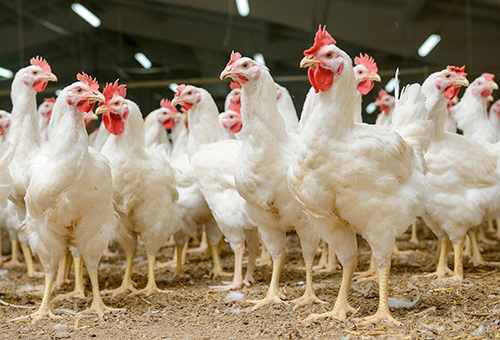
Dairy farmers are not the only ones under the intense scrutiny of consumers and animal rights groups. The poultry industry has also found itself being critiqued by those outside of agriculture and as the subject of unflattering videos recorded in poultry houses.
While our initial reaction is often to push unwanted visitors away, one of the nation's top poultry producers decided to open its doors to the enemy, so to speak. According to an NPR (National Public Radio) report, Perdue Farms invited the Humane Society of the United States (HSUS) to visit and evaluate the company. Through the process, HSUS and Perdue Farms discussed some issues regarding treatment of animals in the poultry industry.
According to NPR, attitudes at the company's cooperate headquarters were already moving toward more consumer appealing production practices prior to this meeting. This was due in part to the acquisition of Coleman Natural, an organic chicken company, in 2011. Satisfaction with the organic poultry production led them to stop the use of antibiotics in their conventionally raised birds, too.
Late last month, Perdue took another step toward their new initiatives by changing the slaughtering process. In the current system, birds are hung upside down in moving shackles. Their heads enter a water bath with electrical current that stuns them and renders them unconscious before slaughter. Moving forward, the shackles will be removed and gas will be used instead of electrical current.
The company also has plans to update its poultry houses by adding windows and perches. They will also study the potential use of breeds that grow more slowly, allowing the birds to support their weight better as they mature.
These changes do not come without a cost, and as NPR reported, Perdue Farms admitted that "critical" consideration must be given before some changes are made. Production agriculture as a whole faces that same question: How far can we go to please consumers and animal rights groups while still caring for animals effectively and producing food efficiently?
July 5, 2016








